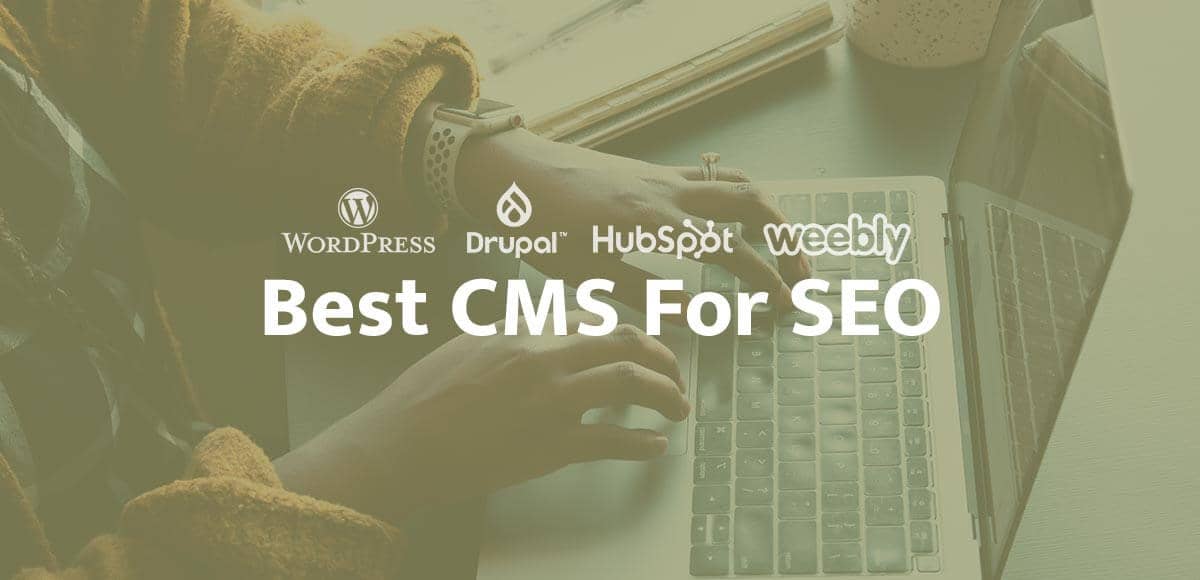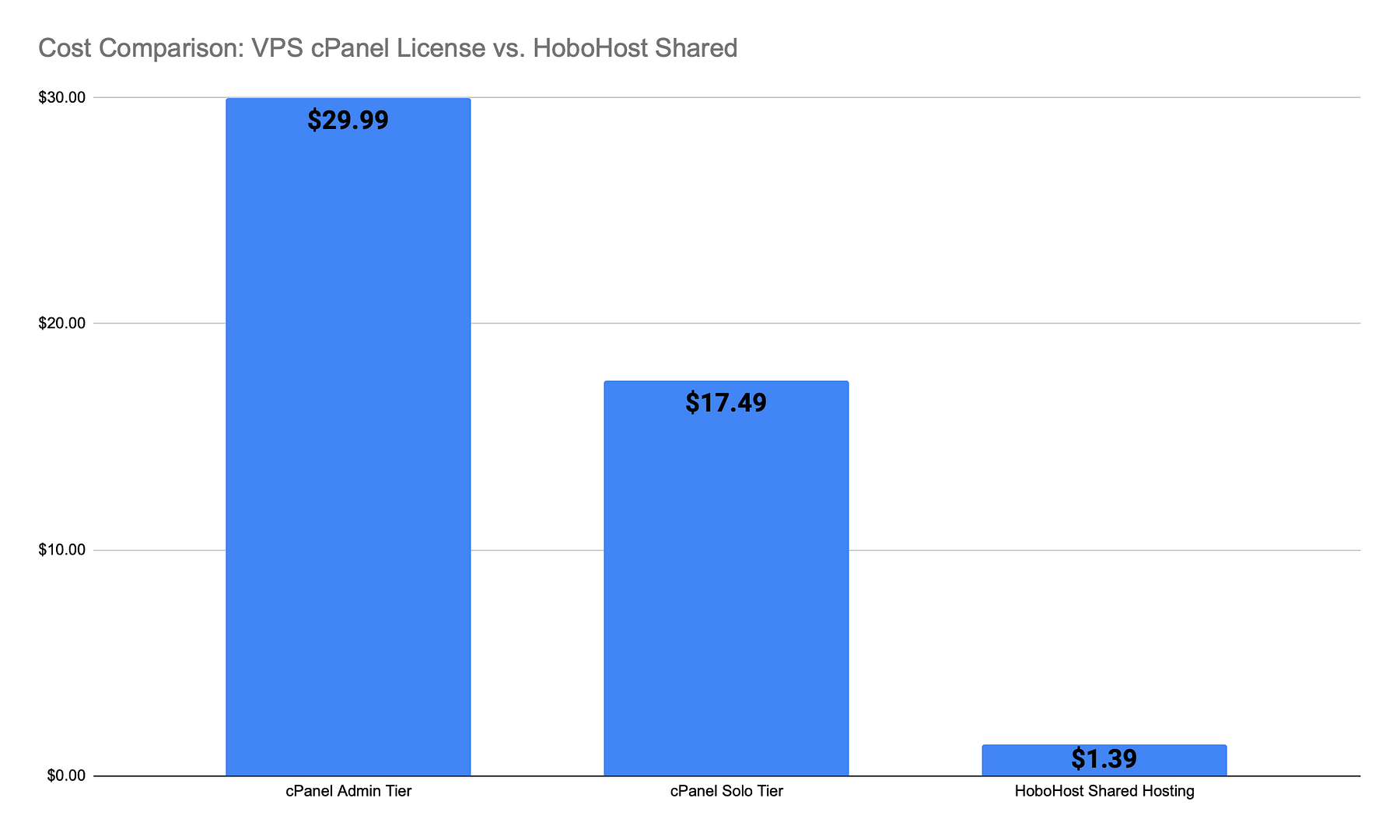Did you know that about 64% of marketers invest heavily on SEO? According to a HubSpot research, SEO is still important in growing online businesses.
If you also want to grow your business through SEO, choosing the right content management system should be a good first step. The best CMS for SEO should offer features that allow you to tweak your technical and on-page SEO to rank higher on search engines. If a CMS lacks the features needed to optimize a site for SEO, it should offer extensions that can perform the same function.
Your website host adds more features to your site to keep it running.
What is a CMS?
A CMS is a platform that allows you to create and share content without the need to add a single line of code. These platforms have made it easy for people looking to start online businesses without coding knowledge to find the process simple.
Whether you are a blogger, photographer, TikToker, musician, or any other professional, you can start and manage a website without prior experience. There are hundreds of platforms out there. However, not all these platforms will offer you the features and experience you need.
When ranking websites, search engines consider several factors. Some of these factors are based on the performance and the features of a CMS. For instance, the CMS needs to:
• Be Crawlable
• Be Indexable
• Have fast loading speed
• Allow on-page SEO elements
• Allows indexation preferences setup
• Allow canonicalization
Unlike other design elements of a website, you only choose the CMS at the beginning before you set up other elements of your website. Which CMS is best for SEO? Here are the features you should look for?
• Customizable Elements – A good CMS should allow you to tweak the title, image alt text, meta description, and other elements on the page. These elements allow you to tell the search engine and the visitors what the page talks about.
• URL Setup – Search engines prefer short URLs with simple structures. The CMS should allow you to create short URLs that may include target keywords.
• Blogging Tools – Blogs provide a simple way for businesses to share content with readers. Having a CMS with advanced blogging tools allows you to reach out to your readers with ease. Features, such as drag-and-drop website builder and editor with call-to-action buttons and features for uploading videos and images will come in handy.
• Internal Linking Features – Internal linking directs search engines to related content on your blog. It also directs readers to other pages on your site for an improved customer experience. You can add internal links to your content manually, but a CMS that allows you to add the links automatically makes your work easier.
• Site Taxonomy – A good CMS platform allows you to create categories and tags to better organize your content. Categories allow you to place pages and posts into different groups and then create tags for the groups. Most CMS platforms allow you to create categories and pages while others offer more advanced options, such as clusters and topics.
• Navigation – Menus make it easy for site engines to crawl your website and for visitors to find their way around the site. Menus should look clean and allow you to find the exact page you need from the site.
• 301 Redirects – Redirects come in handy when auditing content. For instance, instead of removing pages and content that is redundant, you can refresh it and then redirect it. With redirects, you will avoid 404 errors on any of your pages. This, in turn, helps you retain traffic on your pages. A good CMS should allow you to create redirects.
• Responsiveness – You need a website that has a good layout on mobile as it does on PC. Today, mobile searches account for more than 60% of the traffic online. Search engines display sites that are mobile-friendly first on search engines. For your site to benefit from mobile traffic, it needs to be mobile-friendly. You need a CMS that offers mobile-responsive themes and templates.
• SSL certification – An SSL certificate offers security for the information you send between the browser and the site. Google considers SSL as a ranking factor. If your CMS does not offer an SSL certificate, you need to get it from a third party. However, having an SSL certificate from a hosted platform ensures that you do not purchase it separately.
• XML Sitemaps – Your site needs a map. The XML sitemap is a list of the pages on your website for search engines to crawl. It is possible to create a sitemap manually, but the process is simple when a CMS creates it for you.
• Website Analytics – You need to know which SEO strategies work and which are wasting your resources. As such, get a CMS that offers daily, weekly, and monthly metrics. These metrics can help you tweak your SEO strategies to achieve the best results.
Best SEO Friendly CMS
WordPress
WordPress is the most popular CMS platform. According to W3Techs, about 42% of all websites use WordPress. This is a huge percentage considering that there are several other content management systems. If you only take websites that run on popular CMS platforms, WordPress has a market share of 64.8%.
WordPress allows users to add titles, meta descriptions, image alt texts, edited URLs, and headings among other elements on your posts and pages. The CMS also allows you to choose from thousands of free and premium themes so that you can design your website exactly how you want it. These themes are available on the WordPress directory and some from third-party marketplaces.
Solutions, such as Elementor Page Builder allows you to edit your content on mobile, allowing you more control over the layout and overall design of the site. All themes offered by WordPress are responsive. This way, visitors can access your website from different devices.
Users can also create complex websites using WordPress. You can:
• Change the site permalink settings
• Create categories and tags
• Create and edit navigation menus
• Drag and drop site elements
Whatever WordPress lacks in its basic CMS features, you can add through a plugin. Plugins are extensions that add more features to your platform. For instance, you can add a plugin, such as Yoast SEO to optimize your site better for search engines.
There are hundreds of plugins, allowing you to:
• Set up redirects
• Create XML sitemaps
• Access site analytics
• Increase site speed
There is so much more to do with our WordPress CMS. Some of the plugins are free and some are premium. Some of the most common plugins for your WordPress CMS include:
• Smush
• WP Rocket
• RankMatch
• Google XML Sitemaps
• Redirection
• Yoast SEO
With the above plugins, you can do everything you need to make your site rank higher on search engines. The only challenge is that some of the plugins require money and the process of installation can take time. Be sure not to use so many plugins as they can slow down your site.
One of the main advantages of WordPress is its customizable nature. You can create any website you want using the platform. Further, the platform offers great round-the-clock SEO support to its customers. With so many people using the platform, there is a network of people to help you out when you need help. There are also thousands of developers creating products for WordPress users.
Drupal
Drupal is another popular CMS if you need customizability and flexibility. It also offers unlimited bandwidth.
Like WordPress, the platform offers a host of features that make it ideal for different professionals and businesses. You can use Drupal when you need to create a large website for your business. There are some elements in Drupal that may need technical know-how since most of everything else is easy to create.
Editing pages is easy in Drupal. Once you install the site’s interface, it is intuitive for the users. Its editor allows you to type through in the sections and publish your content immediately after. The editor offers commenting sections. As a webmaster, you can add, specify, delete, or customize the comment fields. This is important when tracking leads.
Drupal offers advanced security features – this is what makes it ideal for large organizations and large businesses. Users report only a few errors, no crashes, and fast fixing of bugs. Further, the platform has a community of developers and users willing to help webmasters create a site that meets their needs.
Some of the other features offered by Drupal include:
• Drag and drop functionality
• Design flexibility
• 16,000 Add-on modules to accommodate several businesses
• Advanced support from communities and from Drupal staff
HubSpot CMS
HubSpot is a good platform for newbies in SEO. The platform analyzes your pages and gives you training on how to rank your pages high on search engines. If you take the advice from the HubSpot staff, you can keep optimizing your website so that every page on your site ranks high. Because ranking takes a lot of work, it helps when you have professionals willing to train you and guide you through the process.
If you need hand-holding to optimize your site for SEO, HubSpot can be a great platform for you. Unlike other platforms, HubSpot uses its own language known as HubL. If you are an experienced developer looking for something similar, this language can challenge you a little. However, it is easy to learn and implement.
Some of the features offered by HubSpot include:
• A/B Testing – HubSpot offers A/B testing for all your web pages for better insights.
• SEO Training – The platform manages your ranking, algorithms, and analyses for you. They have integrated tips and training so that you can modify the elements that need modification for the best ranking.
• Customer Support – There are customer support integrations where you can create customer feedback platforms, help pages, and a platform for customers to answer questions.
• Analytics and Hosting – You can access the metrics you need to grow your business. With HubSpot, you can access traffic analytics, contact analytics, campaign analytics, and website analytics. If you also need hosting, HubSpot acts as a host.
• Smart content – This is a feature that allows you to personalize your content to a specific audience.
• Ad Management – You can add ads from the builder and manage them.
Weebly
Weebly is a simple CMS platform for people looking to start blogs, portfolios, and small businesses. If you have no skills in website building, Weebly can be a good platform for you. However, if you need a platform that allows you to add codes for more features, Weebly will limit you.
There are several features offered by this platform, including:
• Themes – There are several themes to choose from. These themes give you access to several designs for different websites. The themes have all infrastructure needed, so all you do is edit the content.
• Ecommerce Upgrades – You can upgrade a simple blog to an eCommerce site with Weebly. Once you perform the upgrade, you will have analytics and metrics, and marketing capabilities.
• Apps and Integrations – If you do not see a feature you need, such as Scroll Back to Top, you can integrate it with an app. Apps and integrations allow you to carry out inbound marketing, email retargeting, and add social media buttons among others.
• Drag and drop features – Editing pages on Weebly is as simple as dragging and dropping page elements on different sections. This makes it ideal for newbies.
Conclusion
With the right strategy and CMS, SEO optimized pages will rank high on search engines. However, even if you take the best CMS, say you take the popular WordPress, you still need a good host to rank high on search engines.
A good host gives you safe data storage, safe and stable server, reliable customer support, enhances your site speed, and allows you more customization options. As such, you have to match a good CMS to a good host. Good hosts offer different pricing models to accommodate different sites, high speed, and up to 99.99% uptime.
Just like in a CMS platform, you need a host who is there for you when you need them. At HoboHost, you get WordPress hosting for small businesses, personal websites, students, and developer websites. We offer four different plans with different features to accommodate all websites. These plans are Floor, Bench, Box, and Subway. Get cheap hosting from HoboHost today!




